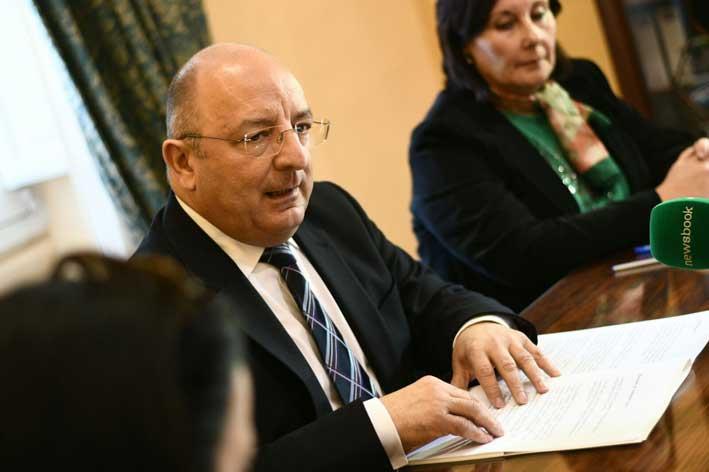Playmobil Malta is employing inmates at Corradino Correctional Facility to do work similar to its 'home-workers' scheme, in which the company's cheap payments to sub-contractors has resulted in the precarious employment of individuals who get paid well below the minimum wage and as little as €1.90 per hour.
This follows an anonymous letter that was sent to The Malta Independent on Sunday claiming that inmates were being paid with cigarettes for their work for Playmobil.
Acting Director for the Department of Correctional Facilities Mariella Camilleri denied the claim, insisting that CCF facilitates and supervises the transition of work from the provider to the inmates. She also ensured that inmates get a monetary compensation for their work, once a cheque is deposited by the external work supplier, which is audited by the mother company.
CCF does not get paid for its role in the process, investing instead in its human resources for these initiatives on a daily basis.
Camilleri also revealed that Heritage Homes also uses the service, which involves inmates painting souvenirs.
The director has repeatedly ignored questions asking for the exact amounts being paid to each inmate, instead telling the newsroom that "discussions are ongoing and a report is to be presented to the Minister regarding the way forward."
However, in spite of being asked, Camilleri did not reveal what was being discussed, and what the report will concern.

Home Affairs Minister Michael Farrugia did not reply to questions sent concerning the aforementioned discussion and report.
Last May, this newsroom initially reported that the German company engages subcontractors, who then employ Maltese people to assemble toys, paying them between €1.90 and €2.00 per hour to work from home, in a clear violation of employment laws by subjecting individuals to precarious conditions of work.
It was also found that the company requires subcontractors to adhere to strict production regulations. Documents indicate that in respect of one product, the sub-contractor will be paid €11.40 for every 1,000 pieces that are produced in three hours. This translates to roughly 350 units at €3.99 per hour, meaning that the workers assemble one piece every ten seconds.
In other instances, subcontractors are required to produce 1,000 pieces for €16 at a rate of 250 per hour. This means that the individual will produce one every fifteen seconds or 1,000 in four hours. It is humanly impossible to produce more units per hour to reach the minimum wage rate.
Well-informed and trusted sources also told this newspaper that Playmobil Malta issues invoices to the sub-contractors according to the total units produced. This, the sources claim, is a way of disguising the true cost of the wage per hour should the authorities challenge this practice, something which, as yet, has not happened yet.
Last June, the Department for Industrial and Employment Relations (DIER) launched an investigation after this newsroom's revelations.
DIER Director Sandra Gatt told the newsroom that during their investigations, EIRA inspectors who visited Playmobil Malta and a few of the sub-contractors, and interviewed both the management and employees, found no wrong-doing in the internal structure of the company but concluded that there was an issue surrounding 'home workers'.
An investigation concerning sub-contractors and home workers had been summarily opened, which as of September was still on-going.
The Maltese company's current CEO, Matthias Frauser, refused to answer questions sent to him when the story broke, with a spokesman saying that the company refuses to speak to the media.